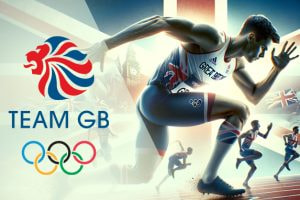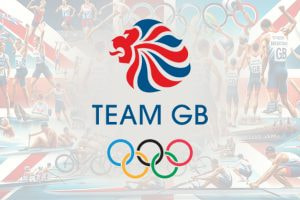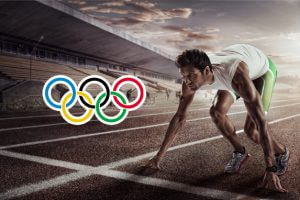The Story Behind Team GB’s Football Exclusion at the Paris Olympics
Great Britain’s absence from the 2024 Paris Olympics football tournament continues a longstanding issue tied to the unique Olympic structure. Unlike individual participation in FIFA/UEFA competitions, the Olympics require a unified Team GB, complicating representation due to disputes among home nations. This article delves into the historical and current reasons behind Team GB’s football exclusion, examining both men’s and women’s teams’ challenges in qualifying for the Games.

Understanding Team GB’s Olympic Football History
Great Britain’s football journey in the Olympics dates back to the early 20th century, marked by a series of commendable performances and victories. The team’s inception into the Olympic scene was unofficially crowned with a gold at Paris 1900, setting a precedent for future successes.
The inaugural football competition at the 1900 Summer Olympics featured a unique format: just two games played among three club teams, without medals being awarded. If Olympics betting had existed at the turn of the century, it’s likely that the odds on a British success would have been low with so few teams taking part.
The USFSA oversaw the selection of France’s team, choosing Club Français, the Paris champions, as its representatives. Belgium’s initial choice, Racing Club de Bruxelles, opted out, leading to the Federation’s decision to send a student team primarily from Université libre de Bruxelles, supplemented by several non-student players. From Great Britain, the honour of representation went to Upton Park F.C.
In a retroactive harmonisation effort with contemporary Olympic traditions, the International Olympic Committee retrospectively allocated gold, silver, and bronze medals to Great Britain, France, and a “Mixed Team,” respectively. Notably, the Belgian squad included players from Britain and the Netherlands.
The historic matches occurred at Paris’s Vélodrome de Vincennes, marking the beginning of Olympic football’s storied legacy.
Scenes from the 1900 Paris Olympics where #UPFC took home the 🥇 @Olympics @FACupFactfile @EmiratesFACup #OLYMPICS pic.twitter.com/Xf2eocJ2wF
— Upton Park F.C. (@UPTON_PARK_FC) October 15, 2017
Upton Park won the game against Union des Sociétés Françaises de Sports Athlétiques, who were representing France, 4-0. The team that played that day was James Jones; Claude Buckenham, William Gosling; Alfred Chalk, T. E. Burridge, William Quash; Richard Turner, F. G. Spackman, John Nicholas, Jack Zealley, and Henry Haslam (captain).
Somewhat bizarrely, by modern standards, the team played in a 2-3-5 formation. Despite the win the team didn’t receive a gold medal as the competition was deemed as a ‘demonstration sport’. However, the International Olympic Committee later decided to award the team medals.
Officially, Team GB clinched their first gold in London in 1908, a feat they proudly repeated in Stockholm in 1912. These early triumphs in Olympic football showcased the nation’s sporting prowess but also helped solidify football’s standing as a competitive Olympic sport.
OTD 1894 @LFC beat Stoke 2-0 (H) (Div 1)
Goals: Jimmy Ross x2OTD 1908 Arthur Berry scored for the UK football team as they won 12-1 against Sweden in a the 1st rd of the Olympic Games football tournament
Team GB went on to beat Denmark 2-0 in the Olympic Games Gold Medal final— GERRARDINHO ® Matt A 🏆PL CHAMP19NS🏆 🇺🇦 (@GerrardinhoNo8) October 19, 2020
With such a promising start, one might wonder why Team GB’s presence in Olympic football dwindled over time. The reason for this lies in the evolving structure of international football governance and the unique challenges posed by the Olympic Games’ rules.
Unlike the World Cup or the European Championships, which allow individual home nations to compete separately, the Olympics mandate a unified representation. This requirement led to complexities given the independent football associations within the UK. The debates and disputes among these home nations gradually eroded the feasibility of a singular Team GB entity in Olympic football.
The decision to halt Team GB’s participation in Olympic football wasn’t made lightly. It stemmed from a complex interplay of governance, representation, and the desire to protect the individuality of the home nations’ football associations. This protective stance was primarily driven by fears that continued participation under a unified flag might jeopardise their independent statuses in FIFA and UEFA competitions.
Looking back, Team GB’s early Olympic football successes remain a significant part of Britain’s sports history. These achievements highlight a time when the nation stood united on the global stage, competing and succeeding together. While the dynamics of international football have since shifted, the legacy of Team GB’s Olympic football history continues to influence discussions about sports governance and national representation in global competitions.
The Home Nations Dispute: A Barrier to Participation
The persistent dispute among the UK’s home nations — England, Scotland, Wales, and Northern Ireland — has been a significant obstacle to Team GB’s participation in Olympic football. This contention stems from concerns over maintaining separate football identities and the potential implications for their statuses within FIFA and UEFA.
The heart of the issue lies in the unique structure of the Olympics, which requires countries to compete as unified entities, a direct conflict with the independent operations of each home nation’s football association.
Despite England’s notable success in the 2023 UEFA Under-21 Euros, where they emerged victorious, this achievement did not translate into an Olympic berth for Team GB. The triumph, while celebrated, underscored the complexities of the existing arrangement between the home nations. The individual football associations’ desire to protect their autonomy has led to a reluctance to field a combined team for the Olympics, fearing it might set a precedent that could endanger their independent standing in global football governance.
Negotiating for a unified Team GB football team has been difficult.
Efforts to reach an agreement that satisfies all parties have consistently stalled, primarily due to the diverse perspectives on how best to proceed. Each home nation values its footballing identity and is wary of any actions that might be construed as diminishing that independence. The lack of consensus has effectively kept Team GB’s men’s football teams out of recent Olympics, including the upcoming 2024 Paris Games.
Interestingly, the London 2012 Olympics provided a temporary reprieve from these disputes, allowing for the assembly of a men’s football team under the Team GB banner. This was largely possible because of the Games’ location, facilitating negotiations and an eventual agreement.
Legendary Manchester United player Ryan Giggs led a team that included Premier League luminaries Daniel Sturridge, Aaron Ramsey, Ryan Bertrand, and Craig Bellamy.
Team GB’s football team in the 2012 Olympics was soo fun to watch
Why did we stop doing this??? pic.twitter.com/SZmuVZ73kA
— Half A Yard ™️ (@halfayardtv_) December 12, 2023
Despite being laden with top-tier talent, the team was ousted by South Korea in the quarter-finals through a penalty shootout.
However, this arrangement was a one-off exception rather than a precedent, as evidenced by the absence of a similar agreement for subsequent Olympics. The challenge of reconciling the home nations’ interests with the collective benefit of Olympic participation remains unresolved.
The ongoing dispute poses a significant question about the future of Team GB in Olympic football. Without a resolution addressing all parties’ concerns, the prospect of seeing a unified team compete in the Olympics remains distant.
As the world moves forward, the question becomes whether the historical and cultural significance of the home nations’ footballing identities can be balanced with the opportunity to compete as one on the Olympic stage.
Team GB’s Men: A Brief 2012 Revival and Its Aftermath
The 2012 London Olympics marked a notable exception in the longstanding dispute over Team GB’s participation in Olympic football. For the first time since the 1970s, Great Britain fielded a men’s football team, spurred by the unique advantage of hosting the Games. This exceptional occurrence was the result of intense negotiations and a temporary easing of tensions among the home nations’ football associations. The agreement focused on showcasing British football globally, taking advantage of the Olympic spotlight in their own country.
The formation of the 2012 team was a delicate balancing act, achieved through compromises that ensured representation from different parts of the United Kingdom. The squad featured a majority of English players, complemented by a notable inclusion of Welsh athletes, yet it notably lacked representation from Scotland and Northern Ireland. This composition reflected the intricate negotiations that made Team GB’s participation possible, emphasising unity and collective pride over individual national identities within the UK.
Despite the positive spirit and a strong performance that took them to the quarter-finals, Team GB’s men’s team could not progress further, exiting the tournament after a penalty shootout loss to South Korea. The squad’s dissolution post-Olympics reignited debates over the feasibility and desirability of assembling a unified British team for future Games. Concerns over complicating the home nations’ distinct statuses in FIFA and UEFA competitions were paramount in these discussions.
The temporary collaboration for London 2012 did not set a precedent for subsequent Olympics. The absence of a similar arrangement for the Rio 2016, Tokyo 2020, and Paris 2024 Games underlines the ongoing complexities and challenges in uniting the home nations under a single banner for Olympic football.
Looking ahead, the future of Team GB in men’s Olympic football remains uncertain. While the London 2012 experience showcased the potential for unity and sporting success, the barriers to repeated participation are significant. Without a clear pathway to address the underlying issues that prevent a unified team’s formation, Team GB’s absence from the Olympic football scene will likely continue. The legacy of the 2012 team, however, remains a poignant reminder of what could be achieved under the right circumstances.
Challenges Facing Team GB’s Women’s Football Team
The absence of Team GB’s women’s football team from the 2024 Paris Olympics is a multifaceted issue, stemming from a series of challenges and setbacks. Unlike their male counterparts, the women’s team has seen sporadic Olympic participation in recent years, marked by their presence in the London 2012 and Tokyo 2020 Games. However, a failed qualification attempt halted their journey to the 2024 Olympics, leaving players and fans alike grappling with disappointment.
The qualification process for the 2024 Paris Olympics marked a significant shift, relying on the Women’s Nations League rather than the World Cup for European teams. This change added a new layer of complexity for Team GB, which traditionally comprises players from England, Scotland, Wales, and Northern Ireland. The decision to nominate England’s Lionesses as the representative team for the qualifying campaign was based on their higher ranking. Despite high hopes, the Lionesses’ efforts fell short in a gruelling competition, highlighting the competitive nature of international football and the slim margins for error.
There will be no Team GB football team at the Paris 2024 Olympics ❌#BBCFootball pic.twitter.com/gYur1tveVe
— BBC Sport (@BBCSport) December 5, 2023
The narrow miss in qualification was particularly disheartening given the recent successes of England’s women’s football, including winning the 2022 Euros and reaching the final of the World Cup. The Lionesses’ failure to secure a spot at the Olympics was a stark reminder of the precarious nature of international football competitions.
For players, it represented a missed opportunity to showcase their talent on one of the world’s largest stages, while for fans, it meant the loss of a chance to support their team in an Olympic setting.
The impact of this failed qualification extends beyond immediate disappointment. It raises questions about the future of Team GB’s women’s football at the Olympics and the existing structure for team selection and qualification. The collaboration between the home nations, necessary for fielding a unified team, is complex. This failed attempt could prompt a re-evaluation of strategies to ensure that Team GB can compete effectively in future Olympic Games.
Future Prospects for Team GB in Olympic Football
The path forward for Team GB’s Olympic football participation is laden with challenges and opportunities. As the sporting world evolves, so too does the potential for new agreements and changes that could facilitate Team GB’s return to the Olympic stage.
One key area of potential lies in the ongoing dialogue among the home nations’ football associations. A renewed commitment to finding common ground and crafting agreements that respect each nation’s identity while enabling unified representation could be the linchpin for future participation.
Technological advancements and the increasing globalisation of sports may also play a critical role in Team GB’s Olympic future. Innovations in communication and negotiation tools can streamline the coordination required among the governing bodies involved. Additionally, the rising prominence of online platforms and social media could amplify fan support, pushing for greater representation of Team GB in Olympic football. This public backing might incentivise the home nations to collaborate more closely, recognising the collective benefit of Olympic participation.
Furthermore, the successes and challenges of past Olympic outings, such as the men’s team’s appearance in 2012 and the women’s teams’ participation in 2012 and 2020, provide valuable lessons. Learning from these experiences, the home nations can develop more flexible and inclusive strategies for team selection and preparation, ensuring that Team GB can compete effectively and cohesively in future Games.
Why, had I ever been offered an opportunity to play for Team GB in the Olympics, my answer would have been a very firm “no”: my views on @FIFAWWC #WorldCup2019 and #TeamGB football in Tokyo 2020-https://t.co/Hi4HSdWQSq.
— Laura McAllister 🏴 (@LauraMcAllister) June 24, 2019
Ultimately, the future of Team GB in Olympic football will depend on a complex interplay of governance, identity, and sportive ambition. While the road ahead may be fraught with negotiation and compromise, the potential for breakthrough agreements offers hope. Such progress would mark a significant milestone in British sports diplomacy and rekindle the spirit of unity and competitive excellence that Olympic participation embodies.



